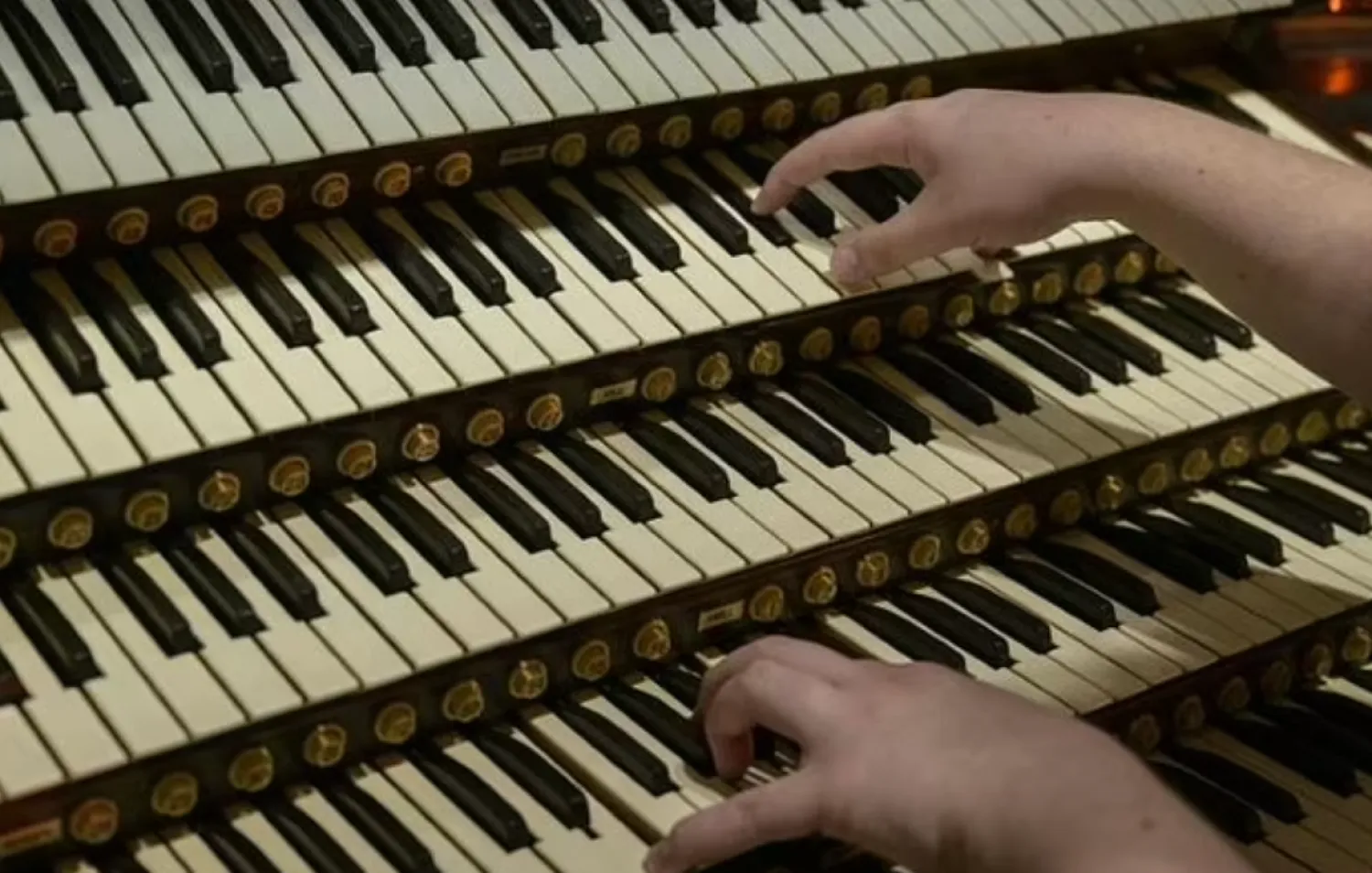In 2008, scriptwriter Ed Bennett-Coles said he experienced a career "death moment": he read an article about AI managing to write its first screenplay.
Nearly two decades later, he and friend Jamie Hartman, a songwriter, have developed a blockchain-based application they hope will empower writers, artists and others to own and protect their work.
"AI is coming in, swooping in and taking so many people's jobs," Hartman said. Their app, he said, responds "no... this is our work."
"This is human, and we decide what it's worth, because we own it."
The ever-growing threat of AI looms over intellectual property and livelihoods across creative industries.
Their app, ARK, aims to log ownership of ideas and work from initial brainchild to finished product: one could register a song demo, for example, simply by uploading the file, the creators explained to AFP.
Features including non-disclosure agreements, blockchain-based verification and biometric security measures mark the file as belonging to the artist who uploaded it.
Collaborators could then also register their own contributions throughout the creative process.
ARK "challenges the notion that the end product is the only thing worthy of value," said Bennett-Coles as his partner nodded in agreement.
The goal, Hartman said, is to maintain "a process of human ingenuity and creativity, ring-fencing it so that you can actually still earn a living off it."
- Checks and balances -
Due for a full launch in summer 2025, ARK has secured funding from the venture capital firm Claritas Capital and is also in strategic partnership with BMI, the performing rights organization.
And for Hartman and Bennett-Coles, its development has included a lot of existential soul-searching.
"I saw a quote yesterday which really sums it up: it's that growth for growth's sake is the philosophy of the cancer cell," said Bennett-Coles. "And that's AI."
"The sales justification is always quicker and faster, but like really we need to fall in love with process again."
He likened the difference between human-created art and AI content to a child accompanying his grandfather to the butcher, versus ordering a slab of meat from an online delivery service.
The familial time spent together -- the walk to and from the shop, the conversations in between running the errand -- are "as important as the actual purchase," he said.
In the same way, "the car trip that Jamie makes when he's heading to the studio might be as important to writing that song as what happens in the studio itself."
AI, they say, devalues that creative process, which they hope ARK can reassert.
It's "a check and a balance on behalf of the human being," Hartman said.
- 'Rise out of the ashes' -
The ARK creators said they decided the app must be blockchain-based -- with data stored on a digital ledger of sorts -- because it's decentralized.
"In order to give the creator autonomy and sovereignty over their IP and control over their destiny, it has to be decentralized," Bennett-Coles said.
App users will pay for ARK according to a tiered structure, they said, levels priced according to storage use needs.
They intend ARK to stand up in a court of law as a "recording on the blockchain" or a "smart contract," the scriptwriter explained, calling it "a consensus mechanism."
"Copyright is a pretty good principle -- as long as you can prove it, as long as you can stand behind it," Hartman added, but "the process of registering has been fairly archaic for a long time."
"Why not make progress in copyright, as far as how it's proven?" he added. "We believe we've hit upon something."
Both artists said their industries have been too slow to respond to the rapid proliferation of AI.
Much of the response, Bennett-Coles said, has to start with the artists having their own "death moments" similar to what he experienced years ago.
"From there, they can rise out of the ashes and decide what can be done," he said.
"How can we preserve and maintain what it is we love to do, and what's important to us?"









